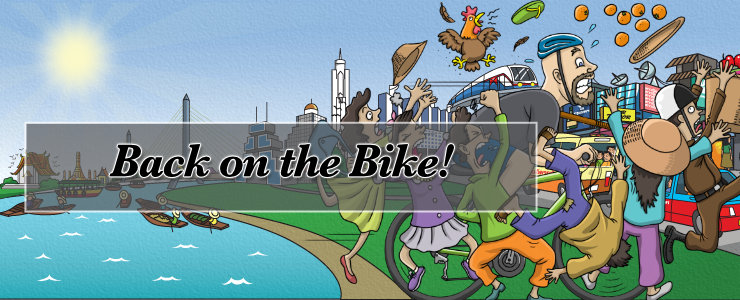There was an article today in the Bangkok Post titled Brain Schools Gain Popularity, which discussed the glut of new schools popping up in Bangkok that purport to give youngsters a leg up in their cerebral analytical skills. It sounds a bit like quackery, but they do have a point. I love Thailand and Thai people but there’s a serious lack of ‘thinking on your feet’ skills here; when presented with a situation that is different from a previously-described or planned situation, many Thais will simply freeze and shrink away from the problem like a snail on a salt plain. From the article: “In classrooms and at home, they learn to follow instructions. But when a situation calls for judgement, a solution to a problem or creativity, Thai children are numb. It’s a worry,” said Narongsak Sangkhasangwan, father of two. This type of learning – listen, remember, repeat, forget – is called rote learning, something I was all-too familiar with when I was teaching High School way back in the day.
One particular example stands out: in Thailand, when you walk into the class, the students stand up and say “Good morning Mr. Yourname,” to which you reply “Good morning how are you?” “Fine thank you, and you?” “I’m fine. You can sit down.” That’s the script, everyday. A friend of mine was new to teaching, and walked into the class on her first day. On cue, the students stood up and said “Good morning Ms. Emilie,” to which she replied “Good morning” and started organizing her books. Notice that? There was no “Fine thank you, and you.”
The students, stunned and a bit unsure what to do, stood in place until one brave soul spoke, with the others quickly following: “Fine thank you and you?”
This is the very definition of rote learning, which is part of the reason many westerners find it infuriating dealing with everyday Thai procedures. Many’s the time when you hit a brick wall with a customer service rep, reaching a point where the only answer you can get is “Sorry, cannot.” “Why?” “Cannot.” “But can you explain why?” “Sorry, cannot.” They have neither the aptitude nor experience to analyze the situation and give you a reason why you can’t do something – you just can’t; that’s what they’ve been told. My friend John put it very succinctly: “There are no rules in Thailand, until there are rules. Then they’re completely unbreakable.” Yes, it can be frustrating, but if you keep an open mind, it can sometimes be fun learning how to move with the system instead of against it. It’s rarely very efficient, but it’s never boring.




Leave A Comment